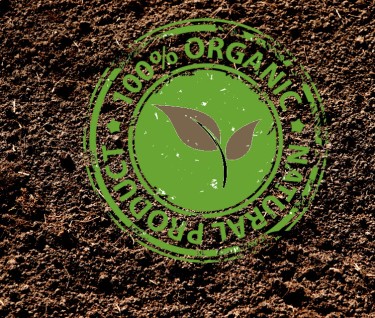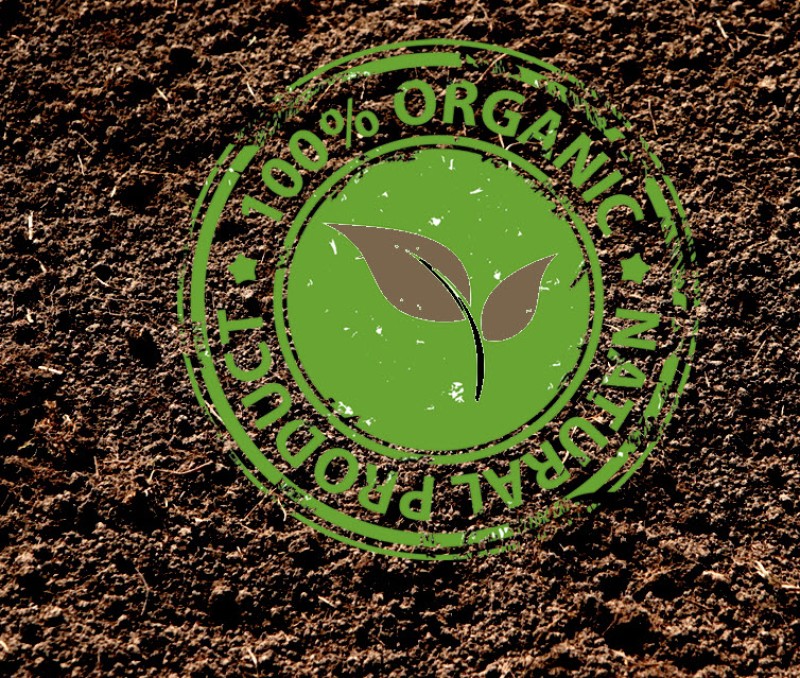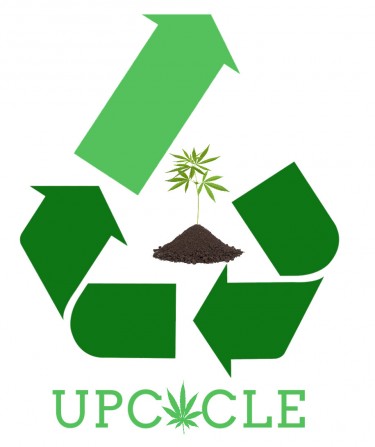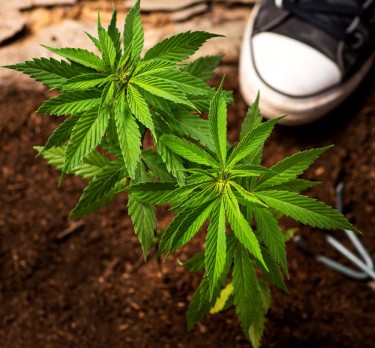Organic vs. Non-Organic Soil - What's the Deal?

There is a long-standing argument about which soil is most preferable for growing cannabis. Experts have argued based on their preferences and as it stands, this argument may continue for some time.
Choosing to grow organic or inorganic cannabis is a decision that can be influenced by various factors. Some of these factors are the nutrient composition of the soil and the optimal requirements of the planted cannabis crops.
Like all living organisms, plants, and animals, cannabis also needs nutrients to survive and grow.
This article provides a comprehensive insight into the pros and cons of using organic and inorganic soils for cannabis cultivation.
Growing with Organic Soil
Organic soil is a type of soil that is created through the systemic decomposition of living (plant and animal) materials. It is a high-quality soil that houses microorganisms, as well as other mineral nutrients that improve the health and productivity of plants.
When cannabis is grown organically, it means that the soil used is chemical-free. Organic soils contain more minerals and nutrients than regular soil. All the forms of soil (sand, clay, and silt) are contained in equal parts and moisture is adequately drained.
Cultivating cannabis organically simply means the crop is being derived from living materials. Synthetic compounds like chemical salts and pesticides are avoided in this growing process. Instead of using man-made fertilizers, mineral rock dust or gypsum are used. They are popularly known as organic fertilizers.
Benefits of Growing with Organic Soil
Cannabis plants need readily available nutrients in the right quantity. Organic soil is composed of organic nutrients that are slowly released over time. There is less probability of overseeing the cannabis plants, neither can nutrient burn occur. This keeps new cannabis plants safe.
Organic soils have microorganisms that have a beneficial impact on the growth of cannabis plants. The activities of these microbes also improve the quality of the soil.
Organic soils are renewable and ecologically sustainable, with proper cultivation practices, the farmer can reuse the soil year in year out. This is better explained by the way beneficial organisms remain in the soil. When proper cultivation practices are used there is a lesser probability of wastage and nutrient runoff. Cannabis produced organically has enhanced flavor and poses less risk to the health of the consumers.
Downsides of Growing with organic soil
Anything with an upside must have a downside.
Apart from the high cost of purchasing organic soil, the major drawback of organic soil is the longer time it takes for its nutrient to be broken down and made available to the plants. Experts say that the reason for this is that organic soils need an optimal amount of microorganisms to break down living materials into nutrients, this process takes time.
In cultivating cannabis plants with organic soil, nutrient deficiencies are not easily spotted. The farmer may be unable to correct the deficiency as quickly as needed
The climate of an environment determines how best the microbial population in organic soil works. In cold climates, the soil microbes work slowly in making nutrients available to plants. This means organic soil is harder to utilize in colder climates.
Organic soils can be improved with a combination of organic materials such as mulch, compost, and manure.
Mulch: This is a natural material that can be applied at the base of the cannabis plants to the top of the soil. They include tree debris, wood chops, decaying leaves, tree barks, and other plant materials. These organic materials have varying textures, smells, and colors.
Cannabis mulch is used to enrich the soil with nutrients that are released as the materials decompose. With mulch, the evaporation rate is reduced and the soil is kept at optimal temperature.
Compost: These are organic waste products that are formed from decaying organic materials like food scraps and grass clippings. This process turns regular dirt into organic soils with a high amount of nutrients.
Compost is used to balance the pH level of the soil, especially if the oil is found to be alkaline. This is because compost is acidic. It also released nutrients into the soil.
Manure: This is waste obtained from living animals. It is filled with organic nutrients that improve the quality of soil for all cultivation purposes. Manure is the most common form of organic material used to improve soil quality. In cannabis crops, it is added to improve nutrient-deficient soils. It can also be used to convert ordinary soil to organic soil.
Growing with Inorganic soil
An inorganic soil is synthetic soil that contains little or zero quantities of organic nutrients. This type of soil is free from contaminants and retains a neutral pH.
Inorganic soil is mostly used in large-scale cannabis production. Here, the chemical (man-made) nutrients provide the necessary minerals needed by the cannabis plants for growth.
Inorganic soil contains nitrogen (N) produced from a synthetic fixation process known as the Haber-Bosch process. The other important minerals, phosphate (P) and potassium (K) are artificially extracted from minerals. Organic soils contain N, P, and K in differing ratios.
Advantages of Growing with inorganic soil
Inorganic soil nutrients are readily available and are much cheaper to obtain.
Due to the availability of inorganic soils in the exact ratio of the important nutrients, the grower can control the amounts of nutrients given to the plant to ensure their specific nutritional requirements are met at all stages of their growth. This results in better and improved harvests that possess a higher cannabinoid content.
With inorganic soil, the cannabis plant can readily access the needed chemical nutrients. With this, there is a quick uptake of minerals and other essential compounds from the soil which would be perfect for a quick correction of any nutrient deficiency.
The drawback of Growing with Inorganic Soil
When used by inexperienced farmers, there is a high chance that the plants may be covered with inorganic nutrient components, resulting in nutrient burns. Over time, inorganic soil becomes deficient once the synthetic nutrients are used up.
Bottom Line
Choosing the right soil type to use depends on the farmer's preference and experience. Farmers must always put the health of the cannabis consumers first while trying out which soil works best for their cannabis cultivars.
MORE ON SOIL, READ THESE...
UPCYCLING YOUR CANNABIS WASTE IN YOUR SOIL? SEE WHAT GROWERS SAY!
OR..
CANNABIS SOIL PREP 101 - WHAT SHOULD DO BEFORE YOU PLANT A SEED?







